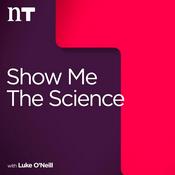33 episodes
Willem Halffman/Serge Horbach: The library and the database: two imaginaries for the research literature
04/2/2026 | 41 mins.Two competing imaginaries inform the current wave of innovations in research publishing: one that perceives ‘the literature’ as a library of research accounts, and one that sees it as a gigantic database. While the library portrays acquiring knowledge as an act of reading texts informed by an understanding of their inter-textual setting, the database sees the literature as a collection of verified facts that can be extracted, or ‘mined’. Both imaginaries present different understandings of what the research literature is, of which knowledge is valued in that literature, how it should be curated and what it should be usable for. Using basic notions of socio-technical infrastructures and inspired by the work of Ricœur, we analyse how these imaginaries are at work in current publishing innovations, such as new tools for enriching text with tags for uniquely identified research entities, new publication platforms and formats such as micro-publications or mega-journals, or forms of meta-analysis. We highlight how both imaginaries can derail into phantasmagories and explore how reflecting on their premises can inform productive accommodations of both.Sebastian Büttner: In der Wissenskrise? Politisierung von Wissen und Expertise als Herausforderung für die Soziologie
21/1/2026 | 50 mins.In aktuellen politischen Debatten etwa zur Klimapolitik oder zu Corona ist einmal mehr deutlich geworden, dass es sehr unterschiedliche Vorstellungen zur Rolle, zum Status und zur Geltung von Wissen und Expertise bei gesellschaftlichen Grundsatzfragen gibt. Zwei Extrempositionen markieren dabei den Korridor der aktuellen Debattenlandschaft: Es gibt einerseits die Verfechter:innen einer konsequent wissensbasierten Politik, verkörpert im Slogan “follow the sciences”, andererseits betont antiintellektuelle und wissenschaftsskeptische Positionen, verkörpert im Topos “alternativer Fakten” bei Trump und Co. Dieser Beitrag nimmt diese aktuellen Tendenzen einer wachsenden Politisierung von Wissen und Expertise wissenssoziologisch in den Blick. Diskutiert werden Grundlagen der Expertise-Forschung in der Soziologie und grundlegende normative Färbungen der Debatte. Entgegen der These einer problematischen “Epistemisierung des Politischen” (Bogner) wird hier dafür plädiert, gesellschaftliche Spannungslinien und dahinterstehende Wert-, Verteilungs- und Identitätskonflikte stärker in den Blick zu nehmen als bisher.Sheena F. Bartscherer/Sven Ulpts/Bart Penders/Sarahanne Field: The (anti)social replication of replication: exploring how replication moves across epistemic communities
07/1/2026 | 47 mins.Since claims about a ‘replication crisis’ started to circulate, the concept and practice of replication have gained new momentum. Some communities have started to promote replication indiscriminately as a practice and criterion for research quality irrespective of the diverse research communities’ various conditions and ways of knowledge production. Others have identified a replication drive, which involves moving replication into various research communities. This drive is enacted by incentivizing or demanding replication and related Open Science practices, and forms part of a culture change strategy towards increased replicability. Here, we propose the two-dimensional social replication of replication framework. It describes the process of moving replication across epistemic communities and enables us to understand first how the diverse epistemic communities across the research landscape relate to replication as a concept, practice and evaluative criterion and, second, which changes it undergoes along the way. The framework’s two dimensions are adaptation and adoption. Moving replication into different research communities without sufficient adaptation may lead to a potentially problematic and inappropriate social replication of replication. We thus argue that sustainable and appropriate social replication of replication requires adaptation, or more precisely a process of co-adaptation between replication and a community’s already established technologies of accountability.Marco Seeber: The evolution of the scientific publishing market, its drivers and implications
10/12/2025 | 38 mins.The seminar describes the dramatic transformation of the scientific publishing market in the last 30 years. It discusses the forces underpinning this process, its implications for science and scientists, and proposes individual and policy actions to counter some of its problematic aspects.Chérifa Boukacem-Zeghmouri & Jie Xu: The big transformation? Early Career Researchers as they race in the open scholarly world. Perspectives from France and China
26/11/2025 | 47 mins.In the ever-changing world of Academia, rules and values are at stake. These form the basis of new regulations, including openness. The Harbinger research project was a six-year international research project investigating the extent to which early career researchers (ECRs) are contributing uniquely to this change, allowing to identify continuums or cracks. This presentation focuses on the results from France and China, shedding light on the shared values of ECRs, their compliance with open science policies, and the differences in their publication, collaboration and socialisation strategies. The presentation will also discuss how these differences in approaching new values and norms contribute to a new research culture, which may represent a call for a reimagining of Homo Academicus.
More Science podcasts
Trending Science podcasts
About RMZ Science Works
Der Podcast des Robert K. Merton Zentrums für Wissenschaftsforschung
Podcast websiteListen to RMZ Science Works, Making Sense with Sam Harris and many other podcasts from around the world with the radio.net app

Get the free radio.net app
- Stations and podcasts to bookmark
- Stream via Wi-Fi or Bluetooth
- Supports Carplay & Android Auto
- Many other app features
Get the free radio.net app
- Stations and podcasts to bookmark
- Stream via Wi-Fi or Bluetooth
- Supports Carplay & Android Auto
- Many other app features


RMZ Science Works
Scan code,
download the app,
start listening.
download the app,
start listening.

































